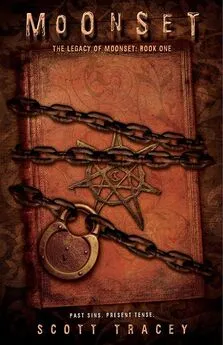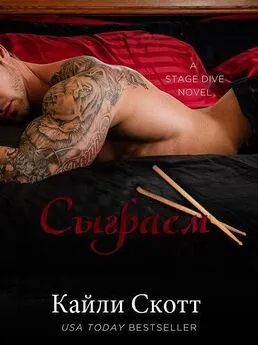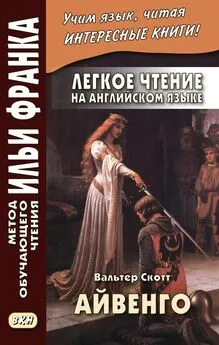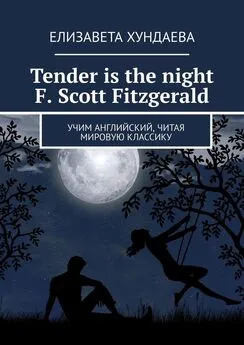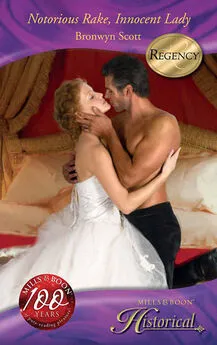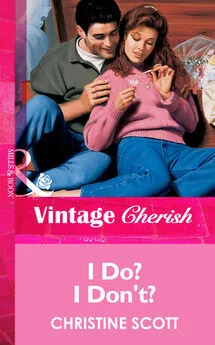Scott Tracey - Moonset
- Название:Moonset
- Автор:
- Жанр:
- Издательство:неизвестно
- Год:неизвестен
- ISBN:нет данных
- Рейтинг:
- Избранное:Добавить в избранное
-
Отзывы:
-
Ваша оценка:
Scott Tracey - Moonset краткое содержание
Moonset, a coven of such promise . . . Until they turned to the darkness.
After the terrorist witch coven known as Moonset was destroyed fifteen years ago—during a secret war against the witch Congress—five children were left behind, saddled with a legacy of darkness. Sixteen-year-old Justin Daggett, son of a powerful Moonset warlock, has been raised alongside the other orphans by the witch Congress, who fear the children will one day continue the destruction their parents started.
A deadly assault by a wraith, claiming to work for Moonset’s most dangerous disciple, Cullen Bridger, forces the five teens to be evacuated to Carrow Mill. But when dark magic wreaks havoc in their new hometown, Justin and his siblings are immediately suspected. Justin sets out to discover if someone is trying to frame the Moonset orphans . . . or if Bridger has finally come out of hiding to reclaim the legacy of Moonset. He learns there are secrets in Carrow Mill connected to Moonset’s origins, and keeping the orphans safe isn’t the only reason the Congress relocated them . . .
Moonset - читать онлайн бесплатно полную версию (весь текст целиком)
Интервал:
Закладка:
“That is enough , Mr. Daggett.”
“How long has he been active? Why haven’t they caught him yet?” I demanded. “I mean, we are talking about a warlock here in town, right?”
The room went so quiet I could almost hear the steam coming out of Mrs. Crawford’s ears.
“We are not discussing this,” she hissed. “If you disrupt my classroom one more time, you will be removed from it.”
I sat back in my chair, my thoughts racing. So the witches in town knew. But what were any of them doing? Why hadn’t the Witchers caught and executed the warlock yet? And it still didn’t explain what he wanted with us. Why bring us to Carrow Mill?
I tuned the class out for several minutes, only picking back up when I heard the word
“Maleficia” crop up again.
“Talk to me about the Black Scare,” Mrs. Crawford said, looking down at Maddy.
“The Black Scare was a period during the fifties when witches grew paranoid over the idea that any of their neighbors or friends could secretly be experimenting with the dark arts.
Invoking Maleficia.”
“How many years?” Her question was like a whip crack the moment Maddy had stopped to take a breath. The girl fumbled, her mouth opening and closing several times but the answer would just not come out.
“Two and a half years,” Kevin piped up. “From ’54 to just before Christmas of ’56.”
“Our illustrious wide receiver with the save,” the teacher commented. “But I would expect nothing less of you, Kevin. Your grandfather played a part in quelling that very hysteria, didn’t he?”
“He did,” the guy nodded.
“So continue on, Kevin. Tell us what you know about those years.”
“It started as a political ploy between rival covens. Accusing someone of invoking the black arts permanently scarred their reputation.”
Behind the podium, she nodded. “So what happened?”
“It continued to spread until it became a class issue. Covens started banding together, accusing Solitaries that were in positions of power or authority. Positions they wanted for themselves. Tensions between the Covens and the Solitaries continued to get worse, and it became a hysteria.”
There had always two kinds of witches—the covens that made the majority of the rules, and those who were solitary—who didn’t have a coven of their own. Since the coven bond could not be forced, or faked, it was looked at by some as a kind of divine providence. Coven witches were stronger, could access more complicated magicks, could pool their powers in ways that a group of solitaries could not. Mrs. Crawford held up her hand to stop him. “A handful of men and women stirred up a firestorm of paranoia and panic. We saw the same thing happen only a few years later with the Red Scare and Communism. What lessons can we glean from the past?” She swept across the room as she spoke, her words as animated as her body. “Luca?”
He lifted his head from the desk, lines creased into his skin. Were his eyes red, or was that just a trick of the light? It was hard to tell. There was enough of a pause that it seemed like he hadn’t heard anything but his name, but eventually he answered. “We hate too easily?”
“Are you kidding? “ Maddy didn’t wait to be called on, nor could she hold her tongue. “It’s not hate to want to be vigilant. Maybe if people had been more concerned with rooting out evil instead of wringing their hands about violating witch’s rights, Moonset never would have happened.” Her eyes found mine. “They would have been put down like dogs, right from the start.”
Maddy’s opinion didn’t surprise me. People talked about killing Moonset the same way they talked about killing Hitler. Sacrificing one to save thousands. It was hard to say whether or not they were wrong, since the only advantage I could come up with to Moonset’s existence was that it led to my own.
“But who gets to decide who lives and who dies?” I found myself speaking up.
“There’s a reason that the Congress is overseen by some of the Great Covens,” she said stiffly in reply. “It’s harder for a coven to succumb to the lure of Maleficia.” But when they did, the result was so much worse. See: Moonset.
The taint of Maleficia took over after a while, and warlocks became essentially brainwashed puppets with the Abyss’s agenda as their only direction. Supposedly, the Coven bond made witches resistant to Maleficia’s influence.
“So you believe in an oligarchy? A police state ruled by the Covens? You’re not in a coven.
That makes you a second-class citizen.”
“He’s right. That would make him better than us.” Kevin had turned in his seat, but he lacked
Maddy’s malice.
Mrs. Crawford swept in front of Maddy’s desk. Her smile was disturbing. “We’re having such excellent debates today.” The pit in my stomach dug a little deeper. “Maddy, Mr. Daggett,” she continued. “Let’s have you both come to the front.”
Mrs. Crawford pulled a second podium from its place against the wall and dragged it forward. “Maddy, you can stand over here,” she said, putting Maddy on the side of the room closer to where she’d been sitting. “And you can take my podium,” she said to me. I stepped behind it, resting my hands on the sides.
Mrs. Crawford walked to the back of the room. “Let’s move forward in time,” she said. A knot formed in my stomach. Before she said anything else, I knew what we were going to discuss, and that it was going to blow up in my face.
“Let’s discuss the political climate leading up to the Moonset War,” Mrs. Crawford said, her hands carefully clasped in front of her. Kevin and Luca both started to stir. “Madeline, take the perspective of the status quo, the Covens and their oversight over the magical community.
Justin, take the perspective of the dissidents. How do we resolve this issue? Let’s debate.”
“I don’t think this is appropriate,” Kevin started.
The teacher’s eyes were feverish, her smile forced. “I didn’t ask for comments, Kevin. Keep your opinions to yourself. This is the perfect opportunity to discuss our history.”
Even Maddy knew this was a bad idea. The only difference was that she also thought it was a fantastic one. I’m sure she thought the debate was a slam dunk—after all, was I really going to defend the actions of terrorists?
There was a pad of paper in front of the teacher now, and a pen in her hand. “You each have thirty seconds to make an opening statement. Maddy?”
She cleared her throat, shot me a smug look, and opened her mouth. “I think the magical community is doing almost everything right,” she began. “But I think we can all agree that more strict guidelines need to be in place to oversee who’s learning what kinds of magic.”
“Why is that? Why can we all agree?” Mrs. Crawford interjected.
Maddy fumbled for a moment. “I think the past speaks for itself,” she said carefully, “and if we’ve learned anything from the Black Scare, it’s that we need to marry vigilance and wisdom together, rather than waver too far in one direction.” Marry vigilance? The sinking feeling got worse. Crawford hadn’t just pitted us against each other because Maddy didn’t like me. Maddy clearly had a history on the debate team.
“Nicely said. And for the rebuttal, Mr. Daggett.”
The only problem with this scenario was that she wasn’t the only one who’d spent some time on a debate team. And I was good. If you counted the four aborted runs on various debate teams, I was technically undefeated. A lifetime of pulling defenses out of my ass translated well to debate. But this … this wasn’t just some debate about capital punishment. I was supposed to take the side of the people who were upset at the status quo. The witches that we now called insurgents. Warlocks. Traitors. Spurred on by Moonset.
There had always been tension between the Covens, who felt like they had been chosen to lead by some supernatural providence, and the Solitaires, the witches who were never swept up into a Coven bond. Moonset had appealed to the disenfranchised, and turned their discomfort and frustration into insurrection.
I ran my fingers along the edges of the podium, choosing my words just as carefully as
Maddy had. “My opponent talks about vigilance, but what she means is wedging the divide between the Haves and the Have Nots even further. Where does the power in our world rest?
Are we all equal? Or does an arrogant minority decide who lives in peace?” The fact that I could relate to this so easily wasn’t lost on me.
“The most powerful Covens had been the ones in charge for hundreds of years. Solitaires simply weren’t taken as seriously because they had no status in the eyes of anyone else. The
Covens had access to resources, strength, and even magic that they didn’t share with their solo-brethren. Since no one understood how, or why, the Coven bond formed, it only worsened the divide between the two. Covens felt their right to rule was almost a birthright.” I took a breath, pausing in case I was going to be cross-examined as well, but Mrs. Crawford didn’t say anything. So I went on. “The fact of the matter is that we’re not all equal. Some of us lord ourselves over the rest. A two-class structure can never be equal, and she has made it clear she doesn’t want it to be. By vigilance, what she means is the strong suppressing the weak, and by wisdom she means following only what those in power—”
“Time,” Mrs. Crawford said firmly.
But my point was made. I saw it in the widened eyes of Kevin and Luca, and the almost dumbfounded expression on Maddy’s face. If she’d thought I would stand up here and stammer how she was right, clearly she’d picked the wrong target.
“I think Justin has hit upon the crux of the issue. The Haves versus the Have Nots. That is, after all, one of the deciding factors that led to the rise of Moonset’s popularity with the disaffected Solitaire movement.” Mrs. Crawford was writing something on her pad of paper, but once she was done she looked up again. “Maddy, refine your view to a more proactive stance.
You’re coasting.”
“I don’t know what that means,” Maddy said, still a little dazed.
“She means stop assuming you’re right because history makes you right. And start thinking about your side of the argument,” Kevin said, before anyone else could say anything. “But this is still a bad idea,” he said, turning around to face the teacher. “Are you even allowed to do this? It’s harassment.”
“Enough,” Mrs. Crawford said with a flamboyant roll of her eyes. “While Madeline gathers her thoughts and tries to put together a coherent argument, let’s let Justin begin. Explain exactly why the establishment is wrong. How are you proposing to change things?”
I looked at Kevin, who was shaking his head. He’s right. This is a mistake. But was this some kind of test? Or was she setting me up? She was asking me to defend my parents—to stand against everything I was raised to be. Was I supposed to back down and concede? I couldn’t do that. “Well, if I was going to tell the Covens to shove it, I’d probably start by gathering the Solitaries together and making sure the movement was behind us.”
“History isn’t defined by the complacent, Mr. Daggett. You need action. You need passion.”
She coughed, covering her mouth with her hand. Her eyes were locked on mine, and for a moment I couldn’t look away. The room shifted like the stop and start of a car. My face grew warm, then my hands and legs. I shifted, suddenly unable to get comfortable.
Читать дальшеИнтервал:
Закладка:
